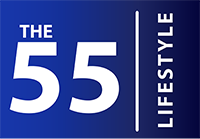We’ve all heard the buzz about superfoods, but what are they? The term identifies a specific food item that encapsulates a certain nutritional benefit, such as the antioxidant properties of blueberries. For men 50 and over, our diet concerns may center on health conditions and the addition (or subtraction) of an extra food group may not only prove helpful but recommended by our doctor. But is there any one food that we should pay more attention to than others? We can help make sense of it all with this article – Superfoods for Men 50 and Over.
Realistically, it’s not the over-consumption of any one food that’s beneficial, but an overall, well-balanced diet that provides the advantages for you. Your body will take what it needs from your meals and get rid of the excess naturally. Incorporating mega amounts of any one food for a perceived nutritional value at best may be disappointing, at worst, take your attention away from an otherwise medical necessity.
Luckily, there’s more research out there than we can digest (pun intended!) and it’s not that difficult in creating a healthy diet that works for you exclusively.
Enjoy our 7 Day Healthy Eating Diet Plan for FREE! Simply sign up for our monthly emails updates and we’ll include the link to download at your convenience. The plan has meal suggestions for breakfast, lunch, dinner and a healthy snack and best yet, can be customized for your tastes. Follow this link for more information.
Healthy Fats for a Healthy Heart
It’s a fact that men have a greater risk of heart attack than women. They also develop heart disease at a younger age. Approximately one in every 100 males develop heart problems by age 45, and by 55 that rate will double (1). Because of this, it’s important that men get enough heart-protective healthy fats in their diet. Saturated fat raises LDL; the “bad” cholesterol; but mono- and polyunsaturated fats lower it, reducing the risk of heart events and stroke.
Power foods rich in monounsaturated fats include olive, canola, peanut, and sesame oils. Some polyunsaturated fats contain essential omega-3 and omega-6 fatty acids which the body cannot produce itself, giving you an even greater superfood bang for your buck. Known rich sources of these essential nutrients include salmon, tuna, soybeans, walnuts, avocado, and tofu (2).
Also check out our blog on Heart Healthy Fitness!
Lean Into Protein
Sarcopenia refers to the normal age-related muscle loss that occurs over a lifetime. After age 30, we start losing 3-5% of lean body mass every 10 years. Many men will lose 30% of their total lean body mass over their lifetime (3). Fortunately, it doesn’t have to be this way. Older men can prevent muscle loss and regain lean body mass that has already been lost. Strength training is crucial to preserving and building muscle, but diet plays an important role as well.
Recent studies suggest that older adults may need 25-30 grams of protein per meal to prevent sarcopenia (4). Because animal proteins are complete proteins; meaning they contain all nine essential amino acids; lean meats and dairy products are best. Examples include fish, skinless chicken breast, lean cuts of beef, and low-fat milk and Greek yogurt.
Fiber for Cancer Prevention and Gut Health
Colon cancer is one of the most common cancers in men. We have a higher risk of developing the disease than women, and that risk increases significantly after age 50. Studies have suggested a link between fiber intake and decreased risk of colon cancer, although not all have found a connection. We need more research to say definitively whether fiber can prevent colon cancer, but what we know is that adequate fiber intake is positively associated with healthy weight, which is protective against many cancers including colon cancer.
It has also shown higher intakes of dietary fiber decreases the risk of Type 2 diabetes and heart disease. Men 50 and over need at least 30 grams of dietary fiber a day (5). Include avocados (notice avocado makes the list twice; a true superfood!), raspberries, pears, beans, oatmeal, whole grains, and whole-wheat breads, pastas, and cereals. Look for “made with 100% whole grains” on product food labels.
Strong Bones
Bone health for men over 50 is imperative. Men’s calcium needs increase from 1,000 mg per day to 1,200 mg per day after age 70. Healthy sources of calcium for men 50 and over will be foods that are also low in saturated fat like Greek yogurt, and low-fat milk and cheeses. Remember that vitamin D is necessary for calcium absorption. It’s also a vitamin that older adults don’t get enough of. You can read more on calcium and vitamin D needs for men over 50 in our blog – Calcium Requirements for Men 50 and Over.
**Note** As with ANY changes to your diet or approach to your overall health, please consult your doctor before making any drastic modifications or adding a supplement that may not be necessary. (We have a series of blogs that look at supplements, including one that dives into Supplements and Antioxidants here.)
Final Thoughts
Superfoods for Men 50 and Over is not that difficult to figure out. Fresh fruits and vegetables in abundance, sensible portions of lean meats and sticking to your daily requirements (get the official guidelines from Dietary Guidelines for Americans) of all your food groups will keep you in great health and out of the doctor’s office! Don’t put too much stock in one food but use an overall approach to dietary wellbeing and you’ll get exactly what you need.
We hope that you’ve found some useful information on Superfoods for Men 50 and Over. As always, if you don’t see something here you want us to cover, feel free to reach out to us directly through our Contact page or leave a comment below. All the best, my friends, and stay healthy ~ Glen.
About the Author

Michelle Monroe has been a Registered Dietitian with the Academy of Nutrition and Dietetics since 2008. She has an array of experience in the field including clinical dietetics, long-term care, diabetes education, food service management, community nutrition, one-one-counseling, and meal planning.
Michelle loves her work and the learning, but most importantly she loves the relationships that she forms with her clients. Being able to help people is one of the most rewarding experiences of her life.
References:
1. https://www.unitypoint.org/livewell/article.aspx?id=c8e56137-2f9f-42fe-9f0a-0b447d94544a
2. https://www.heart.org/en/healthy-living/healthy-eating/eat-smart/fats
3. https://www.health.harvard.edu/staying-healthy/preserve-your-muscle-mass
4. https://khn.org/news/why-older-adults-should-eat-more-protein-and-not-overdo-protein-shakes/
5. https://www.eatright.org/health/wellness/healthy-aging/nutrition-for-older-men
The 55 Lifestyle is a participant in the Amazon Services LLC Associates Program, an affiliate advertising program designed to provide a means for sites to earn advertising fees by advertising and linking to Amazon.com.








